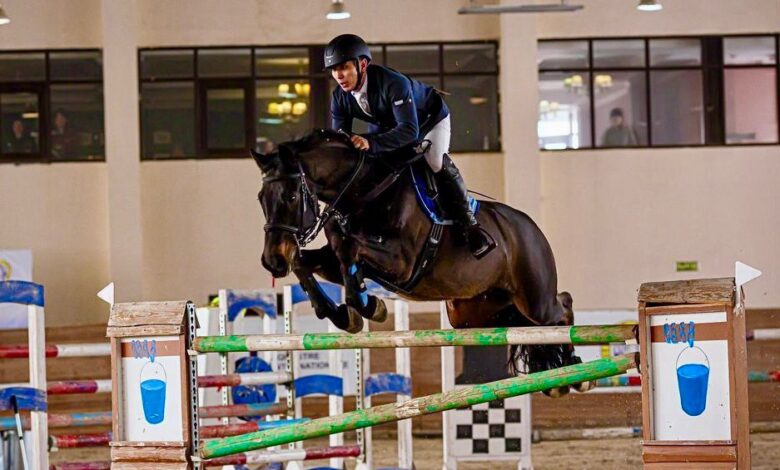Blitz Interview: Erzhan Magzhaev

Erzhan Magzhaev is a Master of Sport in show jumping, a multiple winner of national and international competitions, and a professional coach. With many years of experience in equestrian sports, today he is engaged in training young athletes.
Sports Achievements:
FEI Jumping World Cup Stage – 1st place (Kyrgyzstan, Bishkek, 2013);
International Show Jumping Competition (Russia, Yekaterinburg, 2013); International Show Jumping Competition – 1st place (Russia, Khanty-Mansiysk, 2013);
Championship of the Republic of Kazakhstan in Show Jumping – 1st place (Kazakhstan, Almaty, 2016);
Winner of the RK Cup – 1st place, Almaty, 2016;
FEI Jumping World Cup Stage in Kyrgyzstan – 4th place (Kyrgyzstan, Bishkek, 2014);
RK Indoor Cup among adult athletes – 1st place, Almaty, 2021.
How did you get into equestrian sports?
-I first sat on a horse at the age of 4, on my grandfather’s lap. Already at 8, I participated in regional baiga (a type of horse racing) competitions. Gradually, this grew into a professional passion.
How did your career path begin?
-In 2001, I moved to Astana and got a job as a groom at the “Altyn Tulpar” club (now “Prestige”). Later, I became a coach at this club, and in 2005, I began professionally focusing on show jumping.
What attracted you to show jumping among other disciplines?
-Show jumping can be practiced at any age. The dream of seeing famous Olympic champions emerge from Kazakhstan played a key role in choosing this discipline. My goal is to contribute to the development of athletes who can represent the country at the Olympics.
Have any relatives followed in your footsteps?
-Currently, my nephew Mansur is showing interest in show jumping. I consider this a good start to a family tradition.
Who is your idol?
-My idol is the legendary Absent, the Olympic champion in dressage, born at the Lugovsky stud farm. I am confident that our country has the potential to raise new world-class champions.
Tell us about your coaching work.
-Equestrian sport is disciplining, teaches responsibility, develops care for animals, and, of course, has a beneficial effect on health.
Most of your students are champions. What challenges do athletes face today?
-I have been training students since 2001, and I am proud of each one. There are many talented children in equestrian sports now, but the main problem is acquiring horses suitable for show jumping, and not everyone can afford it. A developed base for training young athletes is also necessary.